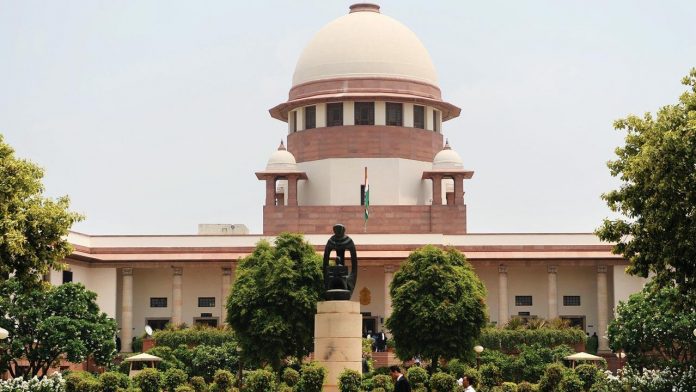By Muslim Mirror Staff
The Supreme Court of India has expressed strong reservations about what it termed “media trials,” citing concerns over biased reporting that can lead to public suspicion of individuals accused of crimes.
In response to this, the Court has directed the Union Home Ministry to formulate comprehensive guidelines for the police to adhere to during press briefings related to criminal cases. The Home Ministry has been given a three-month timeframe to prepare a detailed manual.
This landmark decision was handed down by a bench led by Chief Justice DY Chandrachud, which emphasized the urgent need to sensitize police personnel regarding the impact of media coverage on ongoing investigations and the rights of both victims and the accused.
The Court articulated the critical role media plays in shaping public opinion and the need to strike a balance between the public’s right to access information and the preservation of the integrity of investigations. “Administration of justice is affected by ‘media trials’. We need to decide at which stage of the investigation details should be disclosed. This is a very important issue because it involves the interests of victims and the accused, as well as the broader interests of the public,” the Court stated.
The Court underscored that while the fundamental right to speech and expression is directly involved in media’s reporting of ideas and news, it is essential to prevent ‘media trials’ that could prejudice the investigation or infringe upon the rights of the accused.
The Supreme Court’s decision stems from a petition related to a 2017 instruction on the same subject. Back then, the Court had requested the government to establish rules for police briefings, ensuring the rights of both the accused and the victim are not compromised. This recent directive reiterates the importance of fair and unbiased investigations, stating, “The accused, whose conduct is under investigation, is entitled to a fair and unbiased investigation… at every stage, every accused is entitled to the presumption of innocence.”
This move follows Chief Justice DY Chandrachud’s previous call to journalists in March to maintain standards of accuracy, impartiality, and responsibility in reporting. The Court expressed concern about the selective quoting of speeches and judgments, which can distort the public’s understanding of legal issues.
The Supreme Court’s decision to address ‘media trials’ reinforces the commitment to uphold the principles of justice and protect the rights of all parties involved in criminal cases. The government has assured the Court that it will draft and release guidelines regarding media briefings by the police, with a focus on preserving the privacy of victims and the rights of the accused.







 Google News
Google News